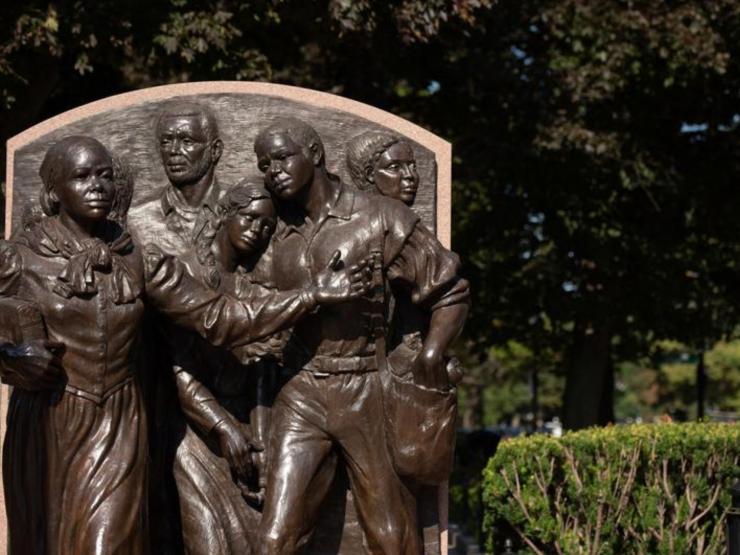Context
Emerson College’s core values are Creativity, Innovation, Inclusion, Curiosity, Equity, Expression, and Collaboration. As an institution, we are committed to these values and build a vibrant community culture and experience that is bolstered by these values.
Fellowship Mission Statement
The vision for the Transformational Leaders Graduate Fellowship is to develop transformational leaders who champion the power and potential of the arts and communication to enrich lives, build connections, strengthen relationships, influence culture, and advance society.
Summary
Emerson’s Transformational Leaders Graduate Fellowship is a cohort-based, two-year fellowship focused on developing future leaders. The purpose of the program is to nurture a diverse cohort of transformational leaders in communications and the arts; to learn from one another; to build inclusive and accessible graduate programs; to enrich and transform the graduate student experience at Emerson; and to effect positive change in the broader communication and arts industries.
Cohort Details
A small cohort of first-year graduate students will be selected to participate in the two-year-long fellowship program. The program’s first year will commence in the Fall semester and conclude with a project or event planned by the Fellows in the Spring semester. The second year also begins in the Fall and includes an opportunity to advise the 1st year Fellows in addition to participating as a Graduate Admissions ambassador. As a group, the cohort works together to cultivate leadership skills that engage the Emerson Graduate Community. All Emerson graduate students are eligible to apply, except those in the Communication Disorders MS Online program.
The Dean of Graduate and Professional Studies will serve as the cohort’s mentor, hosting monthly meetings with the entire cohort and also holding one-on-one sessions with each Fellow. The Dean will make connections with other internal and external partners depending upon the Fellow’s field of interest and career trajectory. Each Fellow will also have the opportunity to be paired with an individual mentor.
Scholarship
Beginning in Fall 2026, in addition to the leadership development, participation, and mentoring opportunities, students will receive a financial scholarship that will cover the full cost of tuition for the length of their program.
Leadership Development and Participation
Fellows meet monthly as a cohort to discuss project ideas and progress, and discuss timely issues. The first year cohort will meet individually and with their second year fellows to plan projects and share mentorship experiences.
During the monthly cohort meetings with the Dean, Fellows will discuss key elements of leadership and pressing issues affecting equity or inclusion in the field of communications or the arts, and plan for the end-of-year project.
Mentorship
Fellows will meet with their assigned mentor at least twice throughout the program. The mentorship gives students access to:
- Expanded career and personal network.
- Professional development opportunities.
- Introduction to/expanded knowledge of industry or field of interest.
TLF Project
The Fellowship’s first year culminates with a project or an event for the broader graduate student community or Emerson community at large that is developed and hosted by the Fellows. Fellows will be given a budget to work with and will be charged with developing and leading the event, which could be a symposium, workshop, or screening.
Pillars
- Courage: Forging a path through stagnation, resistance and fear requires persistence and a willingness to bear pressure. Leading others along the path requires compassion and understanding.
- Character: Leading others in the right direction requires a strong moral compass, along with the willingness to pause and self-reflect.
- Perseverance: Transformational change requires not only passion but tenacity, the willingness to keep going when the going gets tough.
- Adaptability: The challenges of the day are complex and evolving. Motivating others to find collective solutions to these challenges requires discernment, critical thinking, flexibility, continuous learning and the willingness to pivot and lead others through change.
Application Information
Eligibility
Students must be entering their first semester of graduate school during the fall or summer term at Emerson College.
Students must be enrolled in an eligible Emerson program.*
Fellows must maintain good academic standing during their program, including:
- Maintaining a GPA of at least 3.0.
- Full-time enrollment during your first fall and spring semesters.
- Attending all monthly meetings. Absences from more than 1 meeting may jeopardize a Fellow’s status.
- Participation in the planning and execution of the ending Symposium.
- Fulfillment of all other requirements and duties of the fellowship.
*All programs except the Communication Disorders MS Online are eligible to apply for the Fellowship.
Application Requirements
In addition to the materials required for admission to the student’s chosen degree program, applicants will be prompted to respond to a provided essay prompt. Ideal candidates will demonstrate a commitment to the program's mission, a strong connection to our pillars, a capacity for self-development, and the potential to lead change for the common good.
Deadline
Applications are due by the priority deadline for your chosen Graduate Program.* Applications can be submitted at the same time of application to your degree program or after submission. Applicants will be notified of selection for the program in early April prior to the deposit deadline.
*The deadline for on-campus Communication Disorders applicants is February 1. Once Emerson receives your completed CSDCAS application, you’ll be able to access the Transformational Leaders Fellowship application in your admissions portal.
